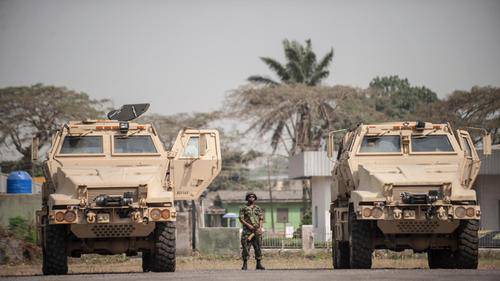
Islamic State-linked attack on UN base in Nigeria traps 25 aid workers
ISIS militants attacked a UN base and overran a humanitarian centre in north-east Nigeria, trapping 25 aid workers.
Dozens of Islamic State in West Africa Province fighters invaded the town of Dikwa in Borno state, forcing troops from the military base and torching the humanitarian centre, a military source told AFP on Monday.
“We have 25 staff sheltering in the bunker which is under siege by the militants, but so far no staff has been affected,” a humanitarian source said.
Military reinforcements, including fighter jets and a helicopter gunship, were sent to help repel the attackers, the military source said.
A spokesman for UN Secretary General Antonio Guterres said only that there was a “security incident”, but gave no further details.
For more than a decade, Nigeria’s military has been battling an insurgency by Boko Haram that has devastated the north-east.
At least 36,000 people have been killed in the conflict and more than two million have been displaced.
Islamic State in West Africa Province split from Boko Haram in 2016 and became a dominant threat in the region, attacking soldiers and bases and kidnapping and killing people at bogus checkpoints.
The violence spread into neighbouring Niger, Chad and Cameroon, prompting a regional military coalition to fight against the militants.
The latest attack came after Nigerian President Muhammadu Buhari replaced his four top military commanders after months of pressure over his government’s failure to end the insurgency.
The latest assault in Dikwa comes three years to the day after the ISIS-linked group attacked a UN humanitarian centre in the remote north-east town of Rann, killing three aid workers and abducting a female staff member.
On Friday, extremists in lorries fitted with machineguns raided Dikwa, causing residents to flee.
The town, about 90 kilometres east of Borno state capital Maiduguri, is home to more than 130,000 people, including 75,000 who fled from other parts of the region and were living in camps where they rely on food handouts from aid agencies.
Source: The National News





